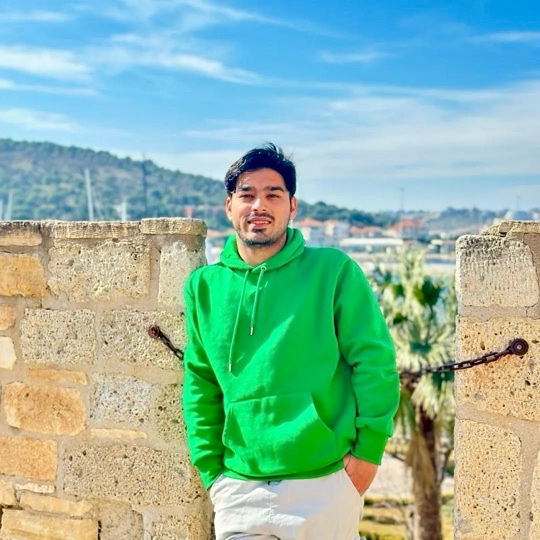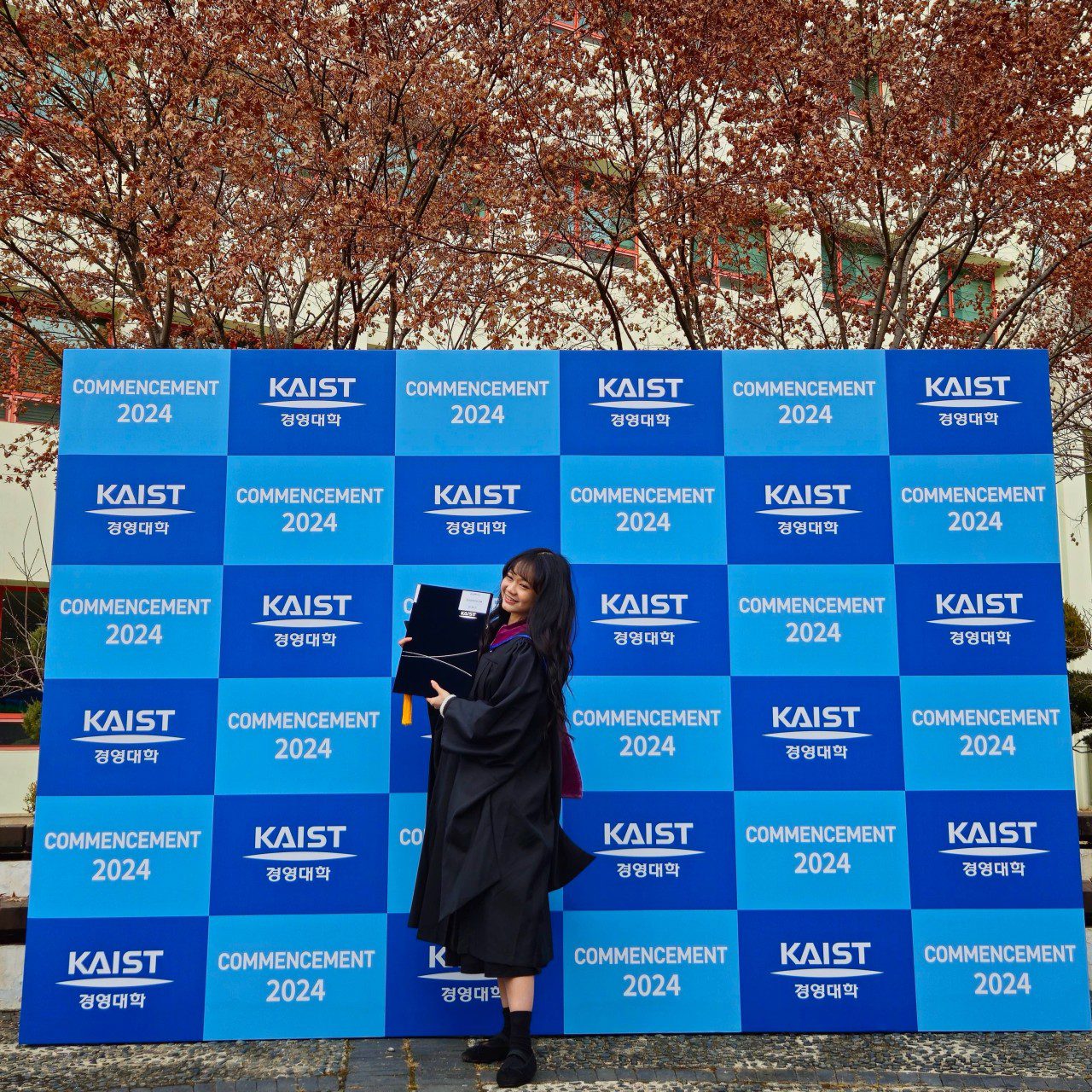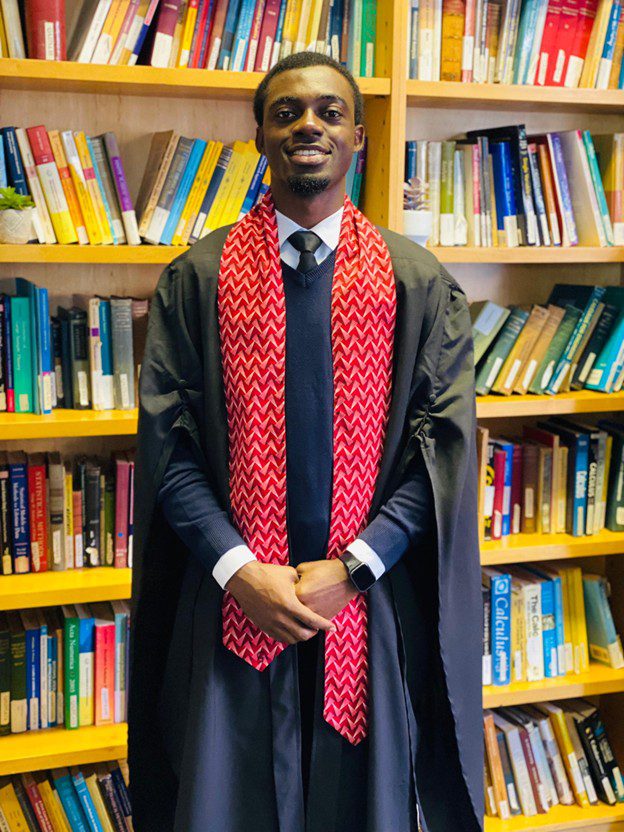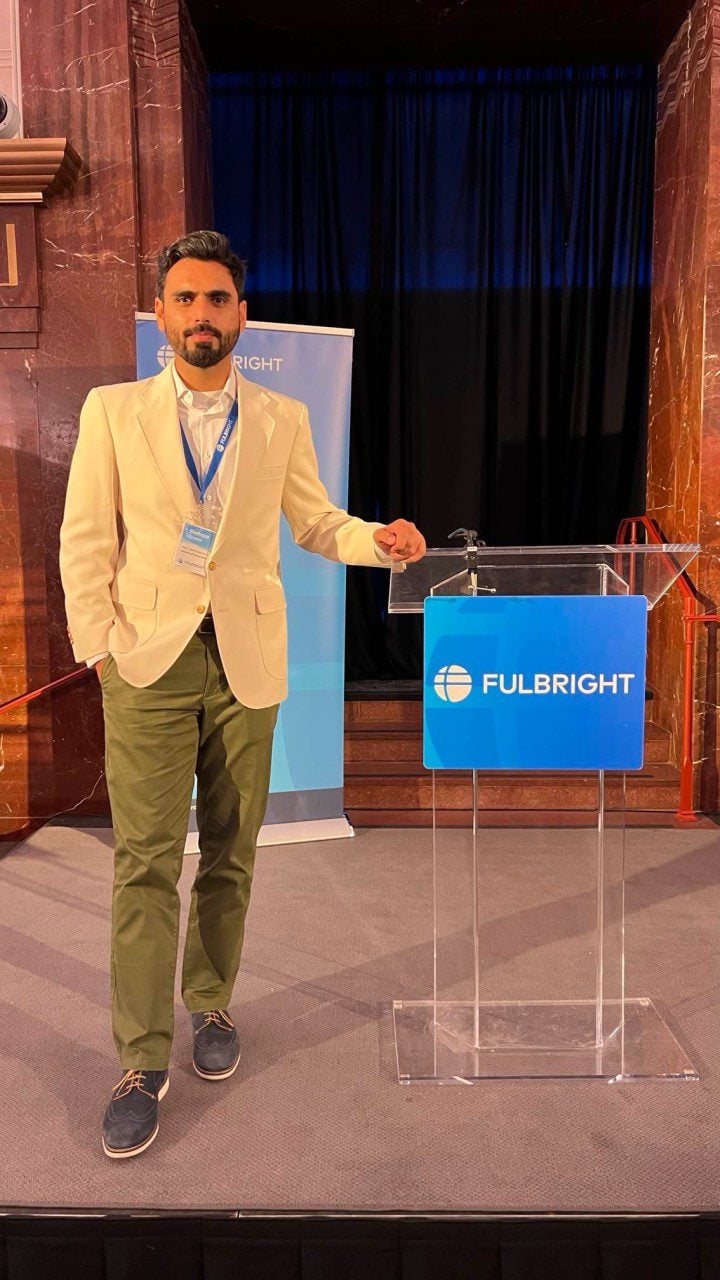How a Pakistani Agronomist Received the Fully Funded Erasmus Mundus Scholarship to Pursue a Master’s in Soil Science Across Turkey, Bulgaria, and Poland
University: Ondokuz Mayıs University (Turkey), Agricultural University of Plovdiv (Bulgaria), University of Agriculture in Krakow (Poland)
Degree: MSc in Soil Science (emiSS – Erasmus Mundus International Master in Soil Science)
Previous Education: BSc in Agriculture – University of Agriculture, Peshawar (AMK Campus), CGPA 3.96/4.00
Scholarship: Erasmus Mundus Scholarship – Fully funded

The Journey
I am Adil Zia from Swabi, Khyber Pakhtunkhwa, Pakistan, with a background in agronomy (Crop Production Sciences). I completed my bachelor’s degree in Agriculture from the University of Agriculture, Amir Muhammad Khan Campus, Mardan, graduating with a CGPA of 3.96/4.00 as the topper of my department and a distinction student (Batch 2017-2020). Currently, I am pursuing my master’s through the Erasmus Mundus Joint Master's Program in Soil Science (emiSS). As part of this program, I have studied in Turkey, Bulgaria, and now in Poland, gaining expertise in soil science and forestry.
Educational Background
Before joining the Erasmus Mundus program, I completed my bachelor’s degree in agriculture at the University of Agriculture, Peshawar, specializing in agronomy. My studies provided me with a strong foundation in plant stress physiology, supported by coursework in crop physiology, soil science, and plant breeding. This diverse academic background helped me develop a comprehensive understanding of agriculture and environmental interactions.
Beyond coursework, I was actively involved in research, leading to the publication of my thesis paper, "Morpho-Physiological Attributes of Different Maize (Zea mays L.) Genotypes Under Varying Salt Stress Conditions," in a Q1 journal. I also participated in seminars, student research groups, and field projects, which not only deepened my scientific knowledge but also enhanced my adaptability and teamwork skills. These experiences played a crucial role in preparing me for the multi-country Erasmus Mundus program, allowing me to navigate diverse academic and cultural environments across different program countries.
How Did You Prepare to Apply for the Erasmus Mundus Scholarship?
During the final year of my bachelor's, I first heard about the Erasmus Mundus Scholarship. At that time, I had no publications or major achievements to strengthen my application. Realizing the need to build my academic profile, I teamed up with my friend Muneeb Ur Rehman to start a research project. Unfortunately, after four months of hard work in the scorching June heat, a strong windstorm destroyed our experiment. That setback was heartbreaking, but instead of giving up, I decided to volunteer for another research project, which was successfully completed under the supervision of Dr. Muhammad Zahir Afridi (Associate Professor, AMK Campus Mardan).
To further enhance my competitiveness, I started working on publications, attending conferences, and taking online courses on platforms like Coursera and edX. Simultaneously, I focused on my thesis research, ensuring I gained valuable experience in my field.
After graduating, I applied for the emPLANT Erasmus Mundus program, where only three candidates were selected from all over Pakistan—I was among them, but I didn’t make it to the final selection. Determined to improve, I spent the next year strengthening my profile, took the IELTS exam, and applied again in 2023 for both emPLANT and emiSS (Erasmus Mundus International Master in Soil Science). This time, I was selected for emiSS.
Erasmus Mundus is highly competitive. In 2023, over 1,000 applicants applied for this program, but only 21 were selected from different countries. I believe my persistence, research experience, publications, academic achievements, and proactive learning made my application stand out.
Could You Briefly Discuss the Erasmus Mundus Program You Pursued and the Specific Field of Study It Focused On?
I pursued the Erasmus Mundus International Master's in Soil Science (emiSS) program, a multidisciplinary program designed to provide in-depth knowledge of soil science across different environmental and climatic conditions. The program involved mobility across three countries: Turkey, Bulgaria, and Poland, allowing me to study various aspects of soil science, including soil classification, agronomy, plant physiology, and forestry.
In Turkey, I focused on basic soil science, soil classification, and laboratory techniques. In Bulgaria, my studies were centered on agronomy, particularly plant physiology and abiotic stress. Finally, in Poland, my research was linked to forestry, where I worked on my thesis titled "The Impact of Regeneration Type After Windthrows on the Activity of Soil Annelids." My research involved analyzing soil properties, organic carbon, nitrogen content, and soil pH while examining the relationship between soil annelid communities and different tree ages.
How Did the Cost of Living Vary Across the Countries You Studied In? Which Country Was the Most Affordable or Expensive, and How Did You Manage Financially?
The cost of living varied across the three countries I studied in e.g., Turkey, Bulgaria, and Poland. Turkey, particularly Samsun, was the most affordable, with low accommodation, food, and transportation costs. Student discounts made daily expenses even more manageable, and public transport was budget-friendly. Plovdiv (Bulgaria) was slightly more expensive than Turkey, but still reasonable. Rent and groceries were affordable, and student dining halls offered cost-effective meal options, though international products and dining out were pricier. Poland, particularly Krakow, was the most expensive, with noticeably higher rent, food, and transportation costs, especially for private accommodations. To manage finances, I carefully budgeted my Erasmus Mundus scholarship, which covered tuition, travel, and living expenses.
Did You Face Any Language Barriers, and if So, How Did You Overcome Them? Did the Language of Instruction Change From One Country to Another?
In Samsun, Turkey, I faced more challenges with language barriers compared to Bulgaria and Poland. Most people in Samsun spoke Turkish, which made communication difficult for me since I wasn't fluent in the language. To overcome this, I relied on Google Translate to help with translations and everyday conversations. Fortunately, I also had Pakistani friends who were studying there, and they were a great help in bridging the language gap. On the other hand, in Bulgaria and Poland, people were more likely to speak and understand English, which made things easier for me in comparison to Turkey. While I still had to learn some basic phrases in Turkish, English was generally sufficient for navigating through most situations in Bulgaria and Poland.
Would You Recommend the Erasmus Mundus Program to Others? What Advice Would You Give to Someone Considering This Scholarship?
I highly recommend the Erasmus Mundus program to anyone seeking both academic and personal growth. It offers an amazing opportunity to study at prestigious universities, collaborate with world-class professors, and work in well-established labs with cutting-edge research. Beyond academics, it allows you to immerse yourself in diverse cultures and explore cities across multiple countries. Currently, I'm in Poland, having already explored key cities in Turkey, such as Istanbul and Ankara, as well as Plovdiv, which is one of Europe's oldest cities. I've also had the chance to visit Croatia, Saudi Arabia, Hungary, and Greece. The exposure to different academic environments, along with the chance to experience various cultures, makes this journey truly unique. My advice to those considering the program is to stay focused on building a strong academic profile, keep pushing forward, and be open to embracing new experiences both academically and culturally. It’s a once-in-a-lifetime opportunity!
Looking Back, Would You Have Done Anything Differently During Your Time in the Program?
Looking back, one thing I might have done differently is to manage my time more efficiently between studies, research, and personal exploration. There were moments when I focused too much on academics and research, and while those are crucial, I feel I could have taken more time to connect with local communities and immerse myself in the cultures around me. I also would have participated in more networking events and academic conferences earlier in the program. These interactions could have opened up more opportunities for collaboration and learning. Overall, though, every experience contributed to my personal and academic growth, and I’m thankful for the entire journey. In the end, I would say;
Every challenge I faced, every country I explored, and every moment of growth have shaped me into who I am today. Erasmus Mundus wasn’t just an academic journey; it was a life-changing experience—an opportunity to learn not just from books, but from people, cultures, and the world itself. It opened my eyes to the beauty of human connection and the endless possibilities that come from embracing the unknown. This journey has taught me that true learning happens when you step outside your comfort zone and let the world shape you.
Want to submit your
scholarship journey?
Submit Your Story Here!
More Scholarship Recipients

My name is Vania Estrellita Soegiarto, and I am from Indonesia. I pursued a Finance MBA at KAIST Business School in South Ko .... Read more

Hello, I’m Toyeeb Olamilekan Abubakar from Nigeria. I earned a Bachelor of Science degree in Statistics from the Universit .... Read more

My name is Shehryar Jafar, and I’m from Karachi, Pakistan. I’m currently a PhD student in Electrical Engineering at the .... Read more

Leave A Comment